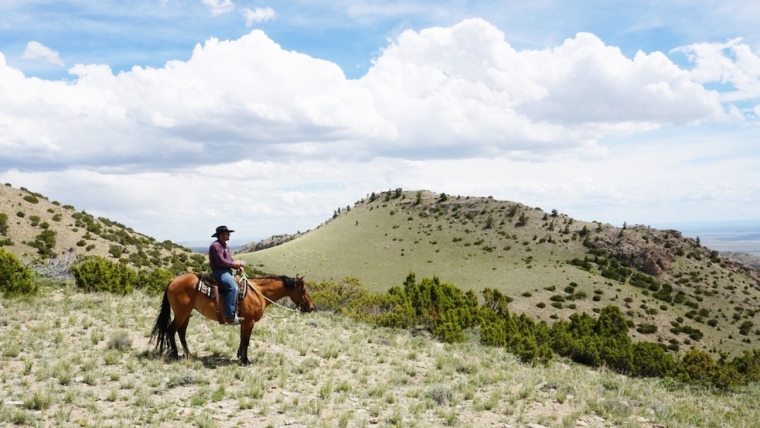
This week we have an American story about one family's succession and transition journey. Ron Rabou is an American farmer/rancher. His farm succession was pretty much a disaster. And while in his twenties, he had to begin figuring out what to do in order to survive in farming. I think you'll find the story interesting and also leave you thinking about what you can do within your own family and farming business to avoid a similar experience.
Rabou grew up on a farm like many in New Zealand. He is a fifth generation farmer in the state of Wyoming. He grew up on horseback farming cattle and when he was 26 years old his father collapsed and died aged 58 years while working on the farm.
“It really changed my life and it really sent me down a course that I never planned on. He was in business with his two cousins and his father and the ranch was an equal partnership.”
“But the challenge that we had is that the ranch hadn't grown in so many years, we had the whole pie, but there wasn't enough pieces of the pie to really share. So really the operation was big enough for one family, but we had four families that were living there. And so when I ended up taking my dad's place, not only did I find myself in the middle of a lot of family dissension because of the split in the family tree through cousins and distant cousins, I found myself really involved in a business that really wasn't cash flowing. I found myself having to take a long hard look at that and say, what is the future plan with this? So when you're involved with partners who really don't have much of a vision, because their mindset is more about traditionalism than it is about progress, that provided a huge challenge and it was something that ultimately could not be worked out.”
One of the things that I have talked a lot about with farmers and succession professionals in this country is communication and have conversations early, like many families, Ron’s had not had those discussions and he says things would have worked out better if things had been done differently. So I asked him what should people be doing so they don't wind up in a situation similar to his.
“Don't fool yourself. So my family always had conversations but they weren't having the right conversations, I'll use this for instance. So the ranch partners had a buy/sell agreement. So it was set up to allow the next generation to come in and buy through a life insurance policy. But part of the stipulation of that buy/sell agreement was a sons only clause. So remember I'm five generations deep cleared back in the late 1800’s in wild west Wyoming and only the men were capable, according to my family, of running an operation.”
“So there was myself, my other male cousin, my sister and four girl cousins. It didn't matter if the girls were more capable than the men of running the operation, they weren't sons so they were never given an opportunity. And the thing that struck me odd was that one of the partners, one of my dad's partners didn't have a son at all. He only had a daughter. So while they had discussions about buy/sell agreements and while they had discussions about estate plans, while they all had trusts, while they all sat down and had business meetings, the conversation was never had about you don't have a son. How does this work for you?”
“So not only did none of the partners bring that up, the guy who only had one daughter never brought it up either. So a lot of times we're fooling ourselves by thinking that we have a plan in place without thoroughly thinking through about what that plan might actually mean for the next generation. And for me what it meant because my dad, my dad passed away out of order and I was actually in line to inherit my grandfather's share over time that because my dad passed away before my grandfather, I was not my grandfather's son. Therefore I could not inherit his share. So two words completely changed the course of our family business forever."
"Our family business which had been around for 100 years got changed forever because of two words because we weren't willing to sit down and say, look, this doesn't make sense because I think a lot of times what we don't want to do is we don't want to have hard conversations."
“But if we don't have hard conversations when we're alive with the people that it's going to affect, those hard conversations are going to get transferred to the next generation. They're just going to become harder, So we had to address all of these things when my dad passed away.”
Ron and his family have gone on to create a large successful farming business. His experiences through this process is in more ways than one like many farmers in this country, and it’s a recurring theme; doing nothing, or leaving the wrong 'solution' in place causes much bigger problems down the line as opposed to engaging in a process early that will set up future generations.
Listen to the podcast to hear the full story
Angus Kebbell is the Producer at Tailwind Media. You can contact him here.

We welcome your comments below. If you are not already registered, please register to comment
Remember we welcome robust, respectful and insightful debate. We don't welcome abusive or defamatory comments and will de-register those repeatedly making such comments. Our current comment policy is here.